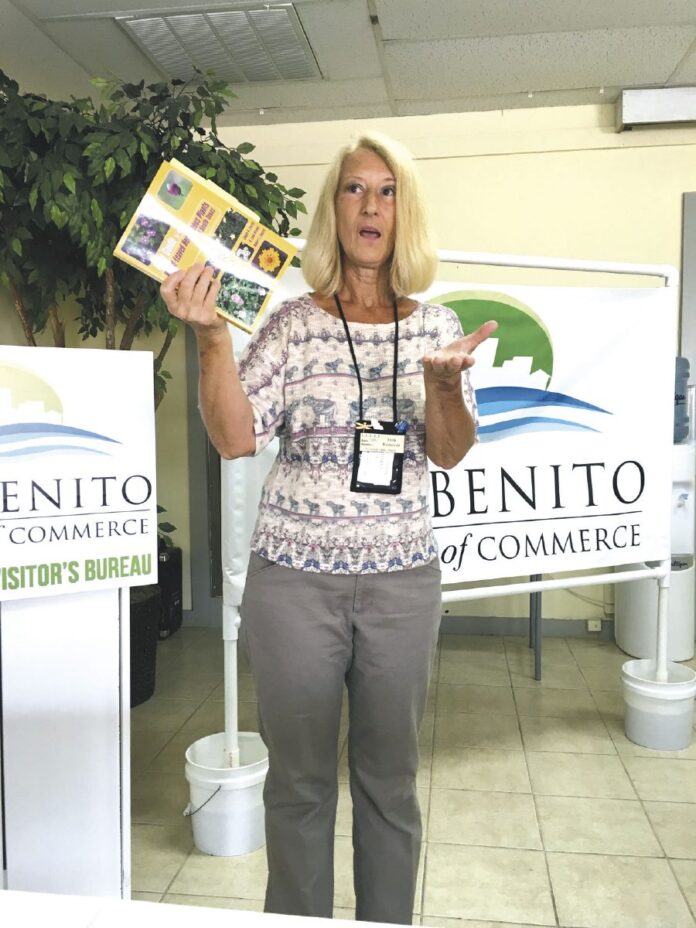SAN BENITO — Anita Westervelt wants to keep the Rio Grande Valley native.
She said less than 10 percent of the natural habitat consists of native plants.
Yesterday morning during the San Benito Chamber of Commerce weekly “Coffee With” session, Westervelt said its part of her job to protect the Valley’s native plant population.
Westervelt is a Texas Master Naturalist with the Valley chapter, which is a group of volunteers dedicated to the study and conservation of natural resources in the lower Valley.
Westervelt a Kansas City native and U.S. Navy veteran, who worked in journalism for 20 years while she was in the service, came to the Valley for the warm weather.
After moving here, she grew interested in the native plants and wildlife of the region. That interest led her to butterflies and then native birds.
“My loves is plants and butterflies,” she said.
Just recently, she has taken up studying along with a group of others, trail maintenance and habitat theory.
“Where all these things are encroaching, we have to maintain the trails,” she said.
Trail maintenance consists of chopping down and cleaning up certain vegetation in the way of trails.
After that, they have to figure out what to do with what they’ve chopped down, leading them to habitat theory.
“For instance, prickly pear cactus converging on the trail. You trim all this vegetation. In nature, it won’t do any good at a landfill so we build brush piles,” Westervelt said.
Brush piles then can be used to build habitats for native insects and animals.
Currently, Westervelt is working on a special project to save the monarch butterfly, which according to Westervelt is declining in numbers.
The National Wildlife Federation this year issued an open letter to the mayors in the United States.
“It was an open invitation for cities to jump on the bandwagon to help the monarch population,” she said.
Monarchs only use milkweed to lay their eggs, eat and for transformation.
Westervelt said that the butterfly’s plant of choice tropical milkweed, in particular, contains a parasite, infecting the insect from caterpillar to butterfly.
Westervelt said the parasite causes deformities in the butterfly.
There is a way around the problem.
Texas contains about 44 native species of milkweed, 16 native species in the Valley and only two are known to be used as a host plant by the monarch butterfly, the climbing milkweed and zizotes milkweed.
“These two are growing in my garden,” Westervelt said. “I am watching them to see if they will attract monarchs.”
If they are successful, Westervelt said the results can be documented to further ensure the success of the monarch butterfly.
To learn more about the Rio Valley
Chapter Texas Master Naturalists
go to http://rgvctmn.org/




